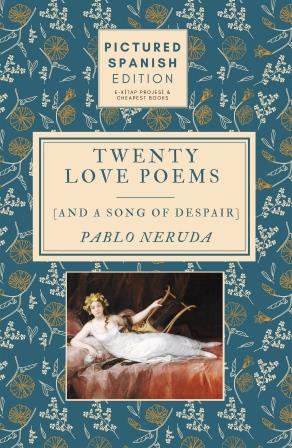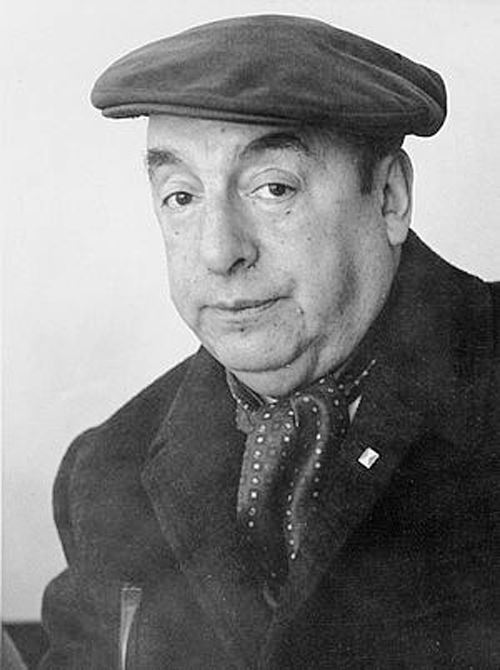Twenty Love Poems and a Song of Despair (Spanish: Veinte poemas de amor y una canción desesperada) is a collection of romantic poems by the Chilean poet Pablo Neruda, first published in 1924 by Editorial Nascimento of Santiago, when Neruda was 19. It was Neruda's second published work, after Crepusculario (Editorial Nascimento, 1923) and made his name as a poet.
Veinte poemas was controversial for its eroticism, especially considering its author's very young age. Over the decades, Veinte poemas has become Neruda's best-known work, and has sold more than 20 million copies. The book has been translated into many languages; in English, the translation was made by poet W. S. Merwin in 1969. A more recent English translation by J. Simon Harris was released in 2020.
It remains the best selling poetry book in the Spanish language ever, almost 100 years after its first publication. As of 2020, it is in the public domain.
* * *
Veinte poemas de amor y una canción desesperada (Twenty Love Poems and A Song of Despair) es una de las más célebres obras del poeta chileno Pablo Neruda (1904-1973). Publicado en 1924, el poemario lanzó a su autor a la fama con apenas 19 años de edad, y es una de las obras literarias de mayor renombre del siglo XX en la lengua castellana.
El libro pertenece a la época de juventud del poeta, ya que fue escrito y publicado cuando no contaba aún con veinte años. Su origen se suele explicar como una evolución consciente de su poética que trata de salirse de los moldes del modernismo que dominaban sus primeras composiciones y su primer libro, Crepusculario.
La obra está compuesta por veinte poemas de temática amorosa, más un poema final titulado La canción desesperada. A excepción de este último, los poemas no tienen título.
Aunque el poemario esté basado en experiencias amorosas reales del joven Neruda, es un libro de amor que no se dirige a una sola amante. El poeta ha mezclado en sus versos las características físicas de varias mujeres reales de su primera juventud para crear una imagen de la amada irreal que no corresponde a ninguna de ellas en concreto, sino que representa una idea puramente poética de su objeto amoroso.

































